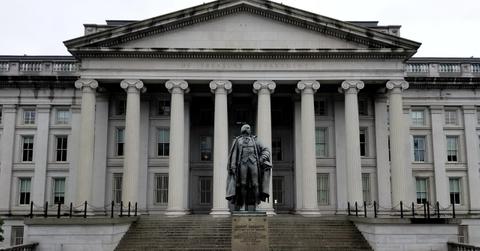Inflation Bonds Are a Good Investment Right Now, and Here’s Why
Inflation bonds may help preserve your money in times of record high inflation. Here’s when it could work for you and the risks involved.
June 17 2022, Published 12:56 p.m. ET
It isn't a secret the U.S. is in a hyper-inflationary period, with the cost of living increasing 8.6 percent in the year ending in May. Naturally, stagnant cash loses value when inflation rises, and even fixed-income securities see smaller real returns thanks to that lost value.
Inflation bonds may be a solution for someone seeking to hedge their investments in a troubled stock market and costly economy.
What are inflation bonds?
Inflation bonds are bonds linked to an inflation index, meaning they rise in value when inflation goes up. They also decrease in value when deflation occurs.
The U.S. Treasury Department issues inflation bonds, called Treasury Inflation-Protected Securities (TIPS). Investors can also access “I bonds,” or inflation-linked savings bonds.
Here’s how it works:
Investors purchase the bond and make a principal payment. When the bond matures and it’s time for the government to pay out the bond, investors receive an inflation-adjusted principal and inflation-adjusted interest.
Inflation bonds can be a good way to hedge your money.
Keeping up with inflation is difficult. The combination of more expensive goods and services with decreased monetary value makes squeezing by particularly difficult for the poor and middle class. Since inflation is high right now and likely has further to rise, it could be a solid place for investors to put their money.
For TIPS, the minimum term of ownership is 45 days, so you’re likely to see your asset track higher with inflation during this time. However, you must own to matury for 5, 10, or 30 years to earn inflation-adjusted interest.
Federal Reserve interest rates also have a correlated impact on inflation bonds, making it an even more apropos time to invest.
Tax benefits for inflation bonds: Both principal growth and any interest income you earn are exempt from state and local income taxes, but subject to federal income tax.
There are risks associated with inflation bonds.
Like any investment, inflation bonds aren't risk-free. For one, there’s always the risk of deflation causing your principal to go down from the time of purchase. Deflation isn't common, but it does occur. The most recent period of deflation happened between 2007 and 2008 at the start of the Great Recession.
Since interest rates are a contributing factor to inflation bonds’ values, rate fluctuations are another risk investors take when buying these bonds. While the Treasury sets a floor price that the bond can't go below, deflation and lowered interest rates can still cause inflation bonds to perform worse than other Treasury bonds.
A final risk has to do with taxes. While inflation bonds have the benefit of only getting hit with federal income tax and not state or local income taxes, there are other hurdles. Inflation bonds come with baggage called “phantom income,” meaning you’re taxed on income you haven’t yet earned from the bond. If you’re strapped for cash as the economy struggles, you may want to be wary of this catch.


